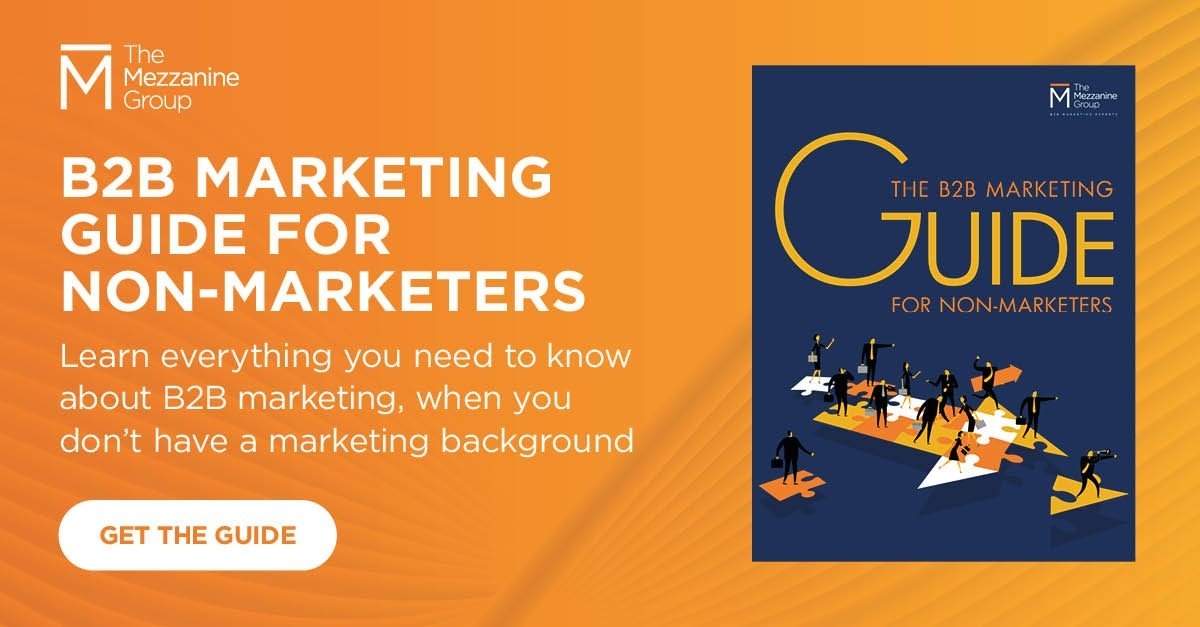B2B vs. B2C Marketing: The Differences That Leaders Need to Understand

For business leaders who are looking to hire or engage a marketer, it's important to understand the differences between Business-to-Business (B2B) marketing and its better known cousin - Business-to-Consumer (B2C) marketing.
The marketing field is dominated by consumer marketers. This presents an opportunity and a threat for B2B companies who are looking to hire a marketer. While experience in consumer markets can be helpful in some ways, that experience can also be dangerous when applied carelessly in a B2B context. Marketing tools and tactics needs to be adjusted for the different constraints and success factors of B2B marketing. In this post, we'll a few of the areas to pay attention to.
What are B2B Marketing Realities?
Many mid-sized B2B companies have limited experience with marketing. As a consequence, the marketing budget in B2B companies is usually constrained, and there can be a lack of understanding of the strategic value of marketing. Some members of the management team may simply view marketing as a sort of glorified graphic design, ie it's good for creating a brochure or two, but doesn't have anything to do with strategically positioning the company or consistently generating leads.
In reality, B2B is much less about 'creative' and much more about business strategy and consistent lead generation. Revenue generation is the bottom-line of strategic B2B marketing. It’s more vital than brand image-building, which has a higher role in B2C marketing. So marketers who are operating in B2B must adjust to the fact that the target market consists of multiple decision-makers, rather than a single ideal persona, and they must always focus on the generation of qualified leads for the funnel.
Here are 3 keys to guide the success of B2B marketers:
1. Sales is the priority
Great B2B marketers are business thinkers first, marketing thinkers second.
Building awareness and increasing loyalty among customers is one part of the job. But more importantly, strategic B2B marketing is all about generating leads and profitable revenue.
A great B2B marketer understands her company’s financials, and makes investment decisions based on which types of channels and techniques achieve the goal of generating strong opportunities for the sales team to pursue and close.
2. Keeping in Touch
“Touching” sales prospects – connecting with them numerous times at different levels across a multi-channel universe – is a complex feat, and even harder to do on a limited budget.
It's essential in B2B though, where there are multiple decision makers who have different needs and priorities. A good B2B marketer will cover off the bases in the buyer's journey, helping target customers to become aware of her company's solutions and its value proposition. This sets the stage for a successful first sales call. B2B marketers need to clearly understand their target market and know which channels to use to get their message through to the right buyers.
3. Picking Your Priorities
The real creativity in B2B marketing is in managing resource allocation, not coming up with pretty collateral or a catchy jingle.
It starts with a solid strategy, figuring out what marketing needs to be done and when. Creating content and collateral, implementing marketing tools, plotting out campaigns and tactics – all these actions take time and money.
While some companies achieve the former, the latter is frequently missing in action. So you get creative. You figure out what you can do on a budget that will show immediate results and also position the marketing department for long-term success, and then build from there.
Additional Resources
There's more to navigating the differences between B2C and B2B marketing. Here are a few additional resources:
.png?width=2361&height=488&name=Mezzanine%20Logo_Horiz_RGB_on%20blue%20(1).png)


